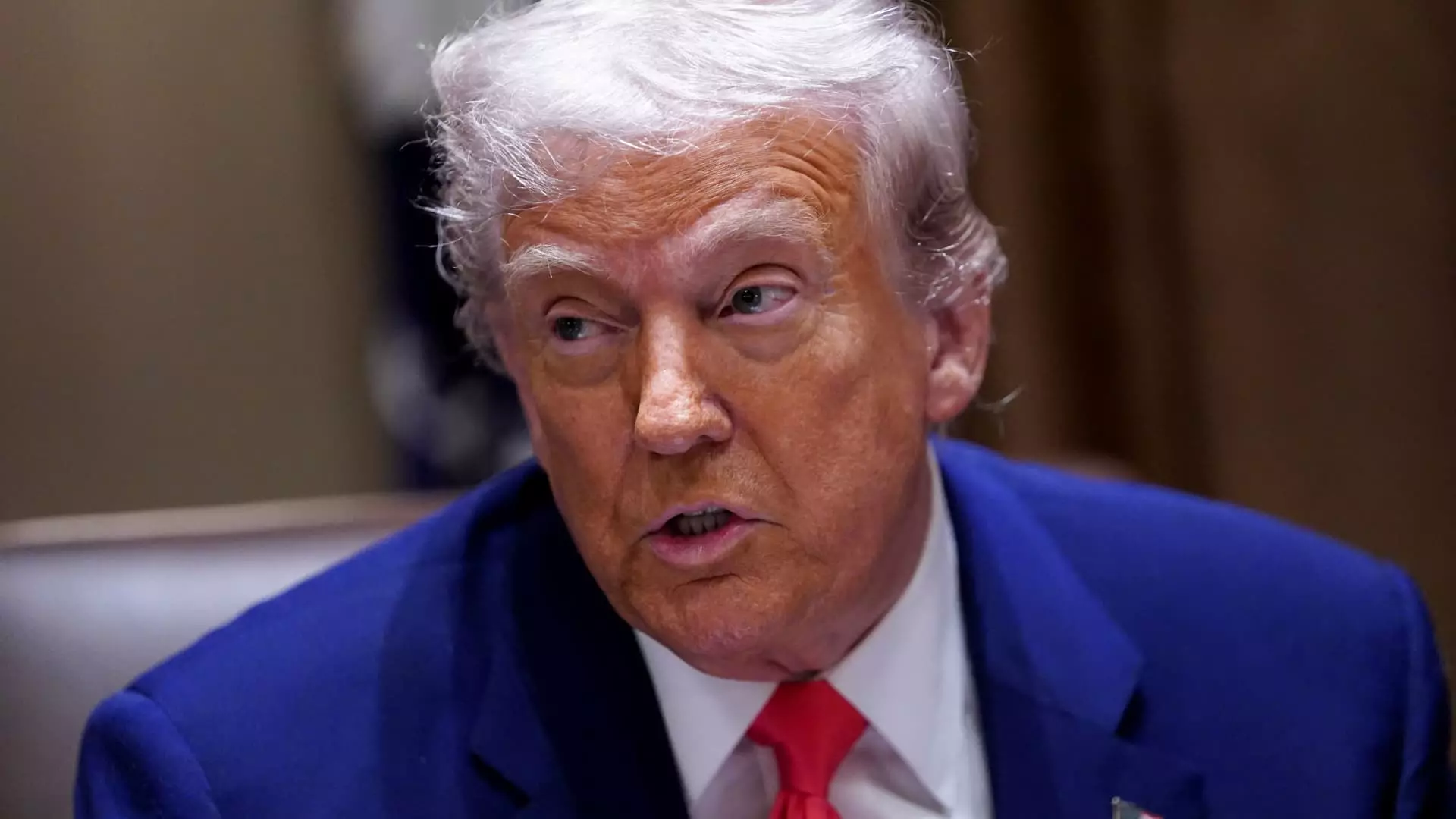The recent escalation of tariffs proposed by President Donald Trump on Chinese imports is an alarming development that risks economic stability. Renowned economist Erica York suggests that a tariff rate surpassing 100% would effectively sever most trade relations between the U.S. and China. Such drastic measures signal an unsustainable approach to international commerce that could lead to a complete collapse of trade rather than resolving underlying issues. By positioning tariffs at an astonishing 145%, Trump does not merely inconvenience foreign suppliers—he is orchestrating a significant retreat into protectionism that threatens to backfire.
The Market Reacts: A Cautionary Tale
The marketplace, which had previously rebounded strongly, is now experiencing sharp declines as the implications of these tariffs settle in. When news broke about the new tariff rate, the once-bullish sentiments evaporated quickly. Investors are groaning under the weight of uncertainty, clearly reacting to the Biden administration’s increasing protectionist policies and the logistical nightmares that follow. The recent whiplash of tariff increases drives home a crucial point: businesses rely on predictable and reasonable trade conditions to plan for the future. By unleashing volatility, the Trump administration is not just impacting China but also inviting chaos into the U.S. economy.
The Cost of Protectionism
York’s comments about the increase in average tariffs leading back to levels not seen since the 1940s cannot be overstated. The sheer scale of this policy shift indicates that American consumers will eventually shoulder the burden of these tariffs. Higher prices on everyday goods will exacerbate inflationary pressures, disproportionately affecting lower-income families, whom this administration claims to champion. The naive notion that higher tariffs will somehow bolster domestic industries ignores the fact that American consumers will pay the ultimate price, leading to strained consumer spending and economic malaise.
The Shadow of a Trade War
China’s fierce reputation for retaliation is well-established, evidenced by their recent raise of tariffs on U.S. imports to a staggering 84%. As the proverbial chess game unfolds, each player’s moves will determine the broader landscape of global commerce. This retaliatory cycle introduces a precarious balance wherein both nations risk mutual destruction. A tit-for-tat escalation risks destabilizing not just the U.S.-China relationship but has wider implications for global markets that rely on a steady flow of goods. The current trajectory towards a trade war seems increasingly dire, as economic principles are cast aside for nationalistic fervor.
Persistent Consequences
The Tax Foundation projects a $171.6 billion increase in federal tax revenue stemming from these tariffs. While it may appear that the administration has engineered a financial win in the short term, this ‘success’ is built on shaky ground. Historical insight into tax hikes reveals that the benefits are often fleeting for the average American taxpayer. The long-term ramifications of implementing such steep tariffs will undoubtedly crush economic growth, thwart innovation, and force companies to reconsider their commitment to American markets.
The overarching truth of this situation is clear: the dire and aggressive tariff policies spearheaded by President Trump threaten to forge a path toward economic stagnation that could redefine American prosperity for generations to come. Each economic decision taken in isolation must consider the broader consequences. Unfortunately, in this instance, it appears that the administration’s responses are driven more by bravado than by economic reason.

